Sugar makes life sweet, but the keto diet requires its followers to give up regular sugar, as well as all of its companions like honey and maple syrup. If you've looked at keto recipes, you've probably seen many different sweeteners, as well as the term "sugar alcohol" as a somewhat ubiquitous descriptor for many keto sugar substitutes.
There is an ever-growing range of natural sweeteners that contain no (or almost no) sugar and are keto friendly. We'll discuss the most common and widely available ones and how to use them most effectively in your sugar-free cooking and baking.
There are many artificial sweeteners that are also technically keto. Since they are not natural food products, we will stick to products that are naturally derived from food and have been shown not to cause the potential health problems that some of the artificial ones can lead to. Because we want to focus on naturally non-caloric sweeteners that are unlikely to cause digestive issues, we're not including maltitol or sorbitol on this list because their digestive effects can be rough.
Sugar Alcohols: A Quick Lesson
Before we delve into each keto sweetener and what it's best used for, let's first make sure you understand the term sugar alcohol. Sugar is a carbohydrate that tastes sweet. When you eat it, your body uses it to make energy. Sugar alcohols also taste sweet, but their structure is not a straight carbohydrate because our bodies do not process them as carbohydrates. Sugar alcohols have a structure that resembles both sugar and alcohol (although they don't contain ethanol and are safe for people who avoid alcohol), and your body doesn't break down the carbohydrate part of it for energy. They contain far fewer calories than sugar and the carbs in them are mostly not in the "net" carb count because, like fiber, they pass through you without being properly digested.
Sugar alcohols occur naturally in many foods such as melons, strawberries and avocados and are obtained through a processing method that separates them into their own product. Sugar alcohols are 25 to 100 percent sweeter than sugar and some also have a cooling effect in the mouth.
Because they're not digested like sugar, they usually don't affect blood sugar. To varying degrees, sugar alcohols can affect digestion—we'll look at the potential for this as we talk about each keto sweetener.
Stevia
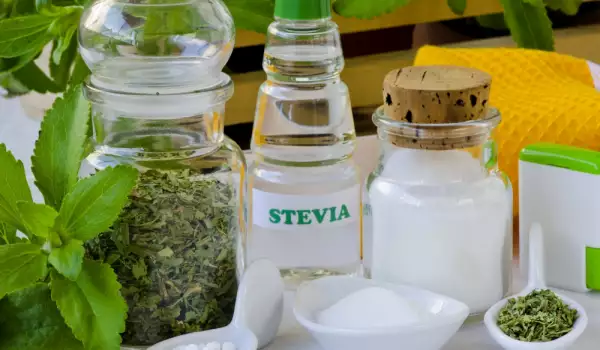
The first of the two common non-sugar alcohol natural keto sweeteners, stevia is derived from the stevia rebaudiana plant. In South America, it has been used locally as a sweetener (as well as a medicine) for centuries, if not millennia. Stevia is naturally calorie-free and has no effect on blood sugar. The leaves of the stevia rebaudiana plant are incredibly sweet: they are 200 to 300 times sweeter than sugar. They also contain inherent bitterness. Because of this, the plant is processed using only the plant's glycosides, resulting in a powdered or liquid sweetener that is incredibly concentrated.
Because it is so sweet, stevia is never a one-to-one substitute for sugar in baking. Instead, it is used in conjunction with sugar alcohol-based sweeteners to help increase flavor. You'll notice that stevia is usually an ingredient in any calorie-free sweetener combination. If you want to use stevia on its own, do so by adding a pinch or spoon of it into drinks, smoothies, salad dressings or other culinary delights. It is not recommended to use stevia alone in a baking recipe because the lost volume of sugar can mess up the recipe.
As for which to prefer - liquid or powdered stevia, many people believe that the liquid version has less bitterness than the powder. Stevia liquid drops come in a wide variety of flavors that can help mask bitterness further.
Monk Fruits
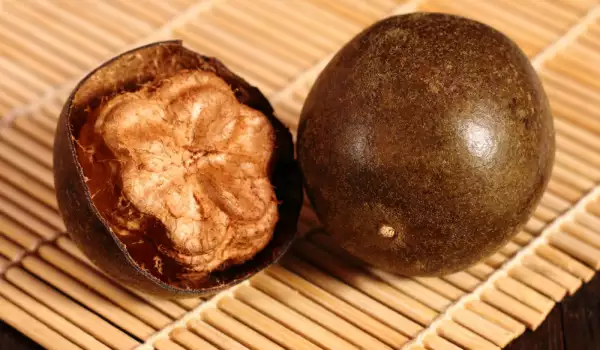
Known as luo han guo in its native China and Thailand, this sweetener comes from the juice of a small green melon. Monk fruit juice is naturally calorie-free and 150 to 200 times sweeter than sugar. Since the juice also has sulfuric qualities, it is processed to retain only the sweet aspect. Like stevia, this fruit cannot be used on its own in baking if sold as its own product, but unlike stevia, monk fruit is usually sold packaged with a sugar alcohol sweetener. Although you should check the labels to make sure, it is common for the packaging to say use like sugar. By itself, monk fruit comes in drops like stevia to use small amounts at once.
Monk fruit sweeteners are usually just called monk fruit, even though they have added sugar alcohols. Monk fruit is available in granulated form like sugar or as a powder to use instead of powdered sugar.
Xylitol
Extracted from the birch tree, xylitol has been used in processed products such as toothpaste and chewing gum for decades. That's because in addition to being naturally sweet, it helps prevent tooth decay. Xylitol has a pronounced cooling effect in the mouth that many people find stronger than other sugar alcohol sweeteners, especially when used in baked goods; the cooling effect can be increased after the dish has cooled from baking. It is about 90 percent sweeter than sugar and is usually sold on its own.
It does not caramelize and may crystallize when heated. Also, xylitol is toxic to dogs, so anything made with it should be kept out of the reach of pets. Although it was the first widely available sugar alcohol and was consequently used in many food products, xylitol is less useful than erythritol and allulose, and as such is less common in cooking and baking today (although it is still widely used in processed products).
Erythritol
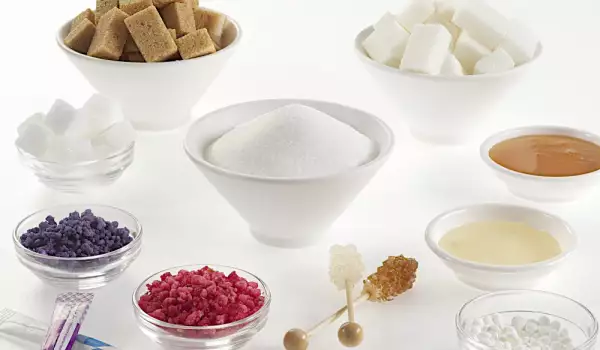
The sugar alcohol made from corn - erythritol - is about 70% sweeter than sugar and contains only a fraction of a calorie per gram. Although it has some ability to caramelize, it can be tricky to work with as heating can lead to crystallization. Regardless of the brand, erythritol has a cooling effect in the mouth. This makes it best used with strong aromas so that the effect is less noticeable.
Because erythritol is a sugar alcohol and is not digested, it can cause indigestion. It is usually minimal. It's worth noting that erythritol can have strange effects on coloring: when mixed with sunflower oil, baked goods will turn dark green within a day.
Allulose
A naturally occurring sugar alcohol found in foods such as jackfruit and raisins and referred to as "rare sugar, " allulose has revolutionized the sugar-free industry in both powdered and liquid sweeteners by holds up better in both freezing and baking than its predecessors. If you've purchased reduced sugar or sugar-free products in the last year or two, chances are allulose is an ingredient in them; it quickly gained popularity because of how similar it tastes to sugar.
It doesn't have the cooling effect that erythritol and xylitol have and it caramelizes well. It also does not crystallize when heated, and although it is about 70% sweeter than sugar, it contains 90% fewer calories than sugar. The carbohydrates in allulose are not digested, so it does not affect blood sugar.
Allulose is sold as a powder, in granulated form as sugar and as a syrup. Syrup is an excellent substitute in recipes relying on honey or maple syrup for sweetness, but since it browns faster than sugar, you must be careful not to darken or burn it. The powder is not yet sold in cup-for-cup format, so you can replace each cup of sugar in a recipe with 1 1/3 cups of allulose, or use 1 cup of allulose and supplement with powdered or liquid stevia. The amount of stevia depends heavily on the brand as they can vary greatly, but an average amount would be 1/2 teaspoon.
In addition to these individual sweeteners, there are numerous mixed keto baking sweeteners. Most are a combination of the above ingredients, although some may also contain less beneficial additives such as dextrose.
If you want to make your own mix, don't worry and go bold by combining the above sweeteners in powdered form. You don't need to worry because it will be safe for your stomach.
Check out more delicious recipe ideas for keto desserts or diabetes-friendly pastries where you can use one of these keto sweeteners.
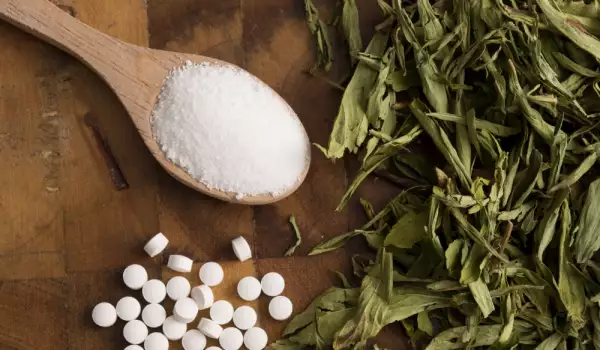
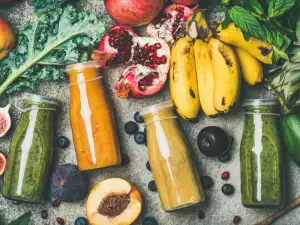






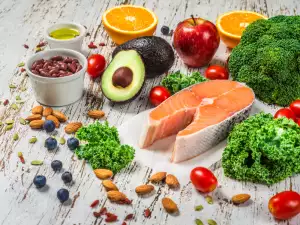




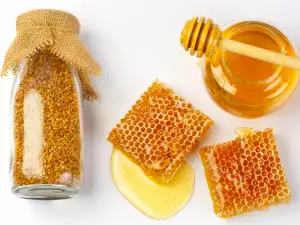






Comments